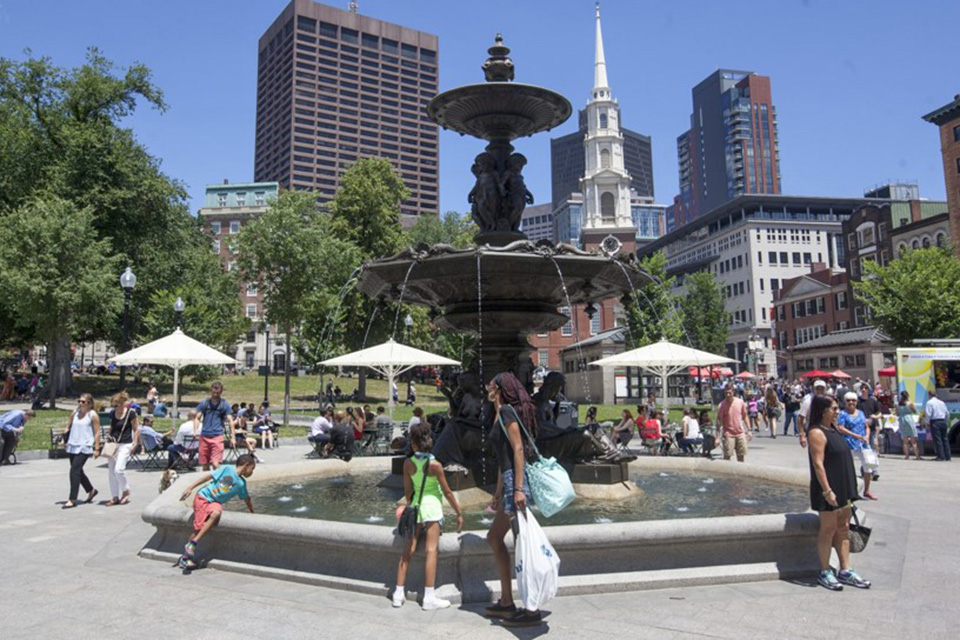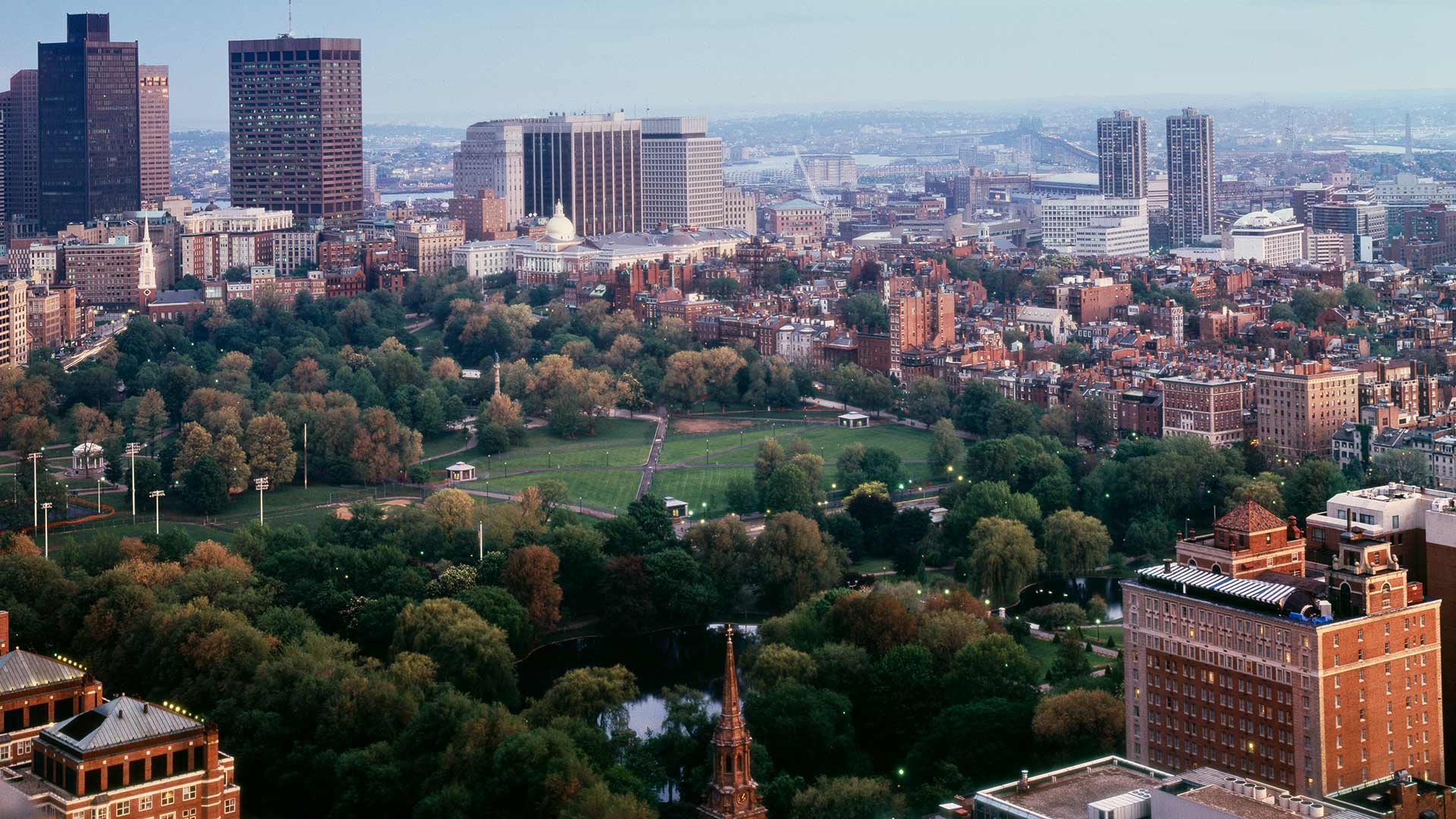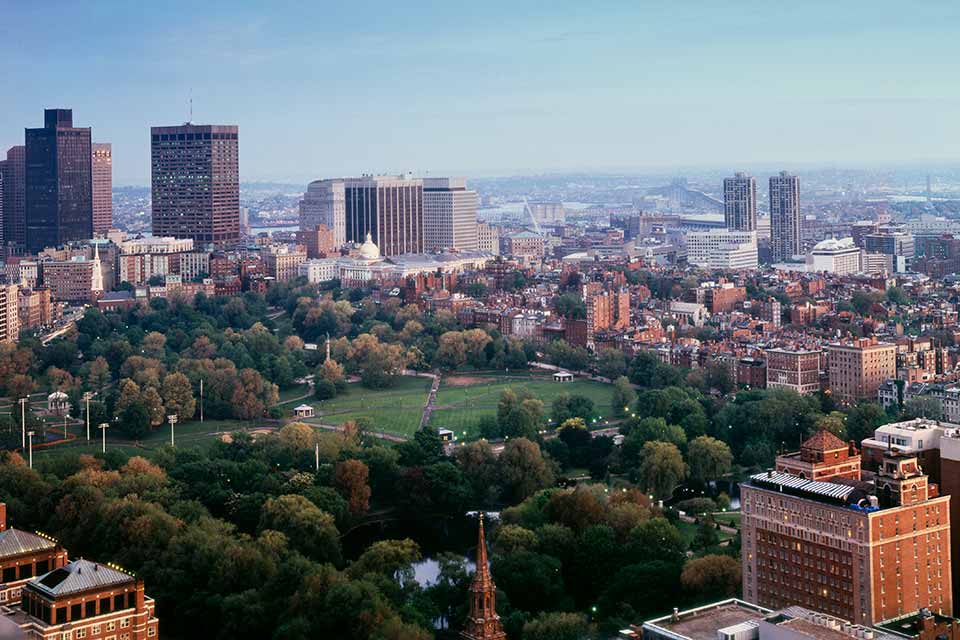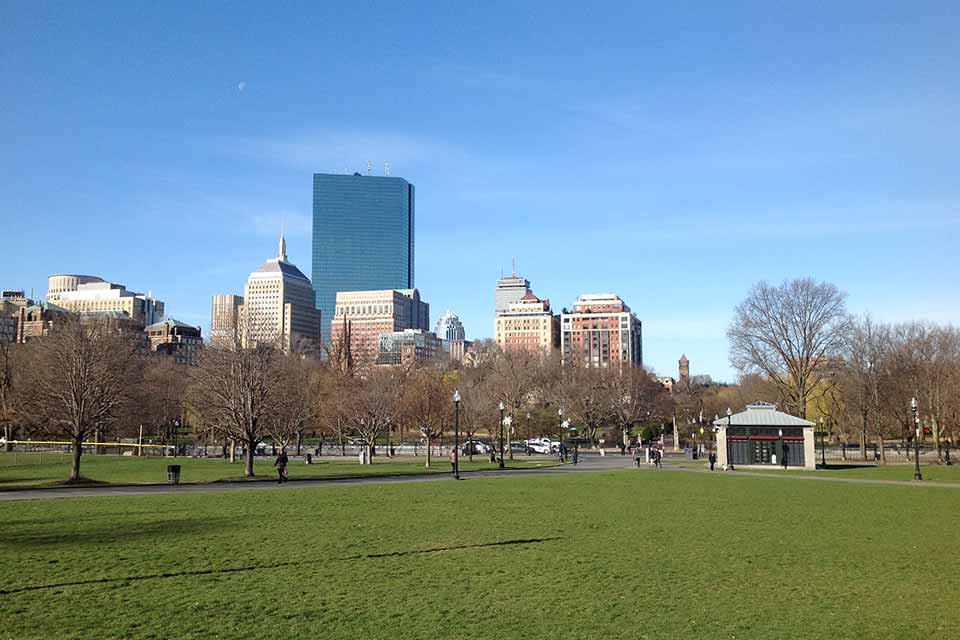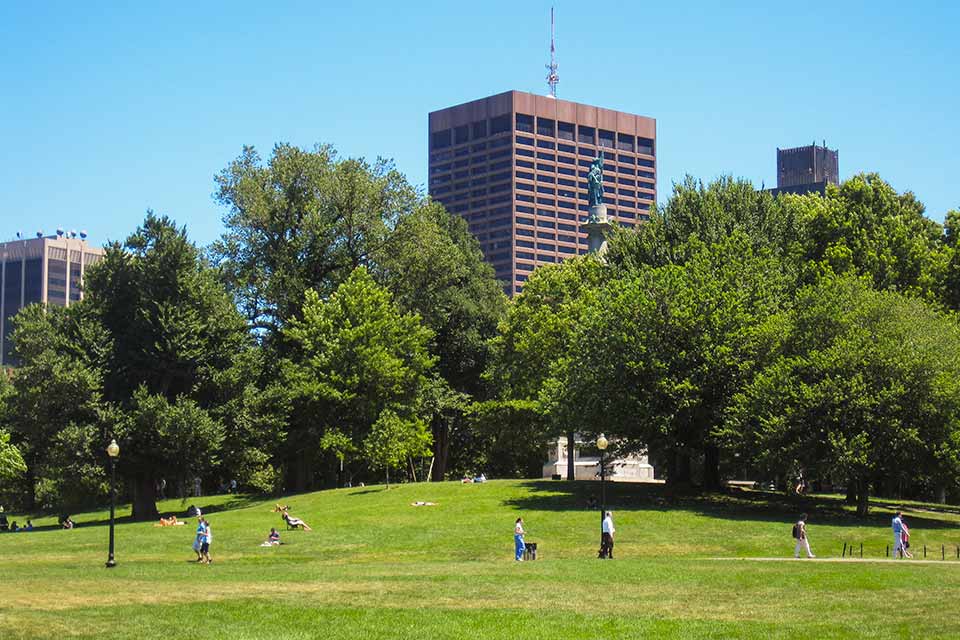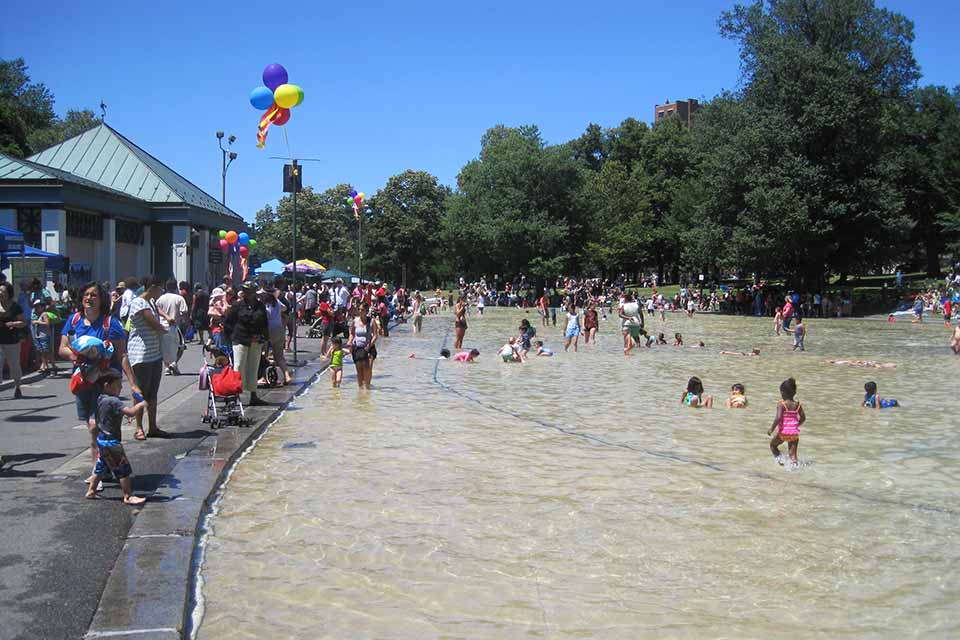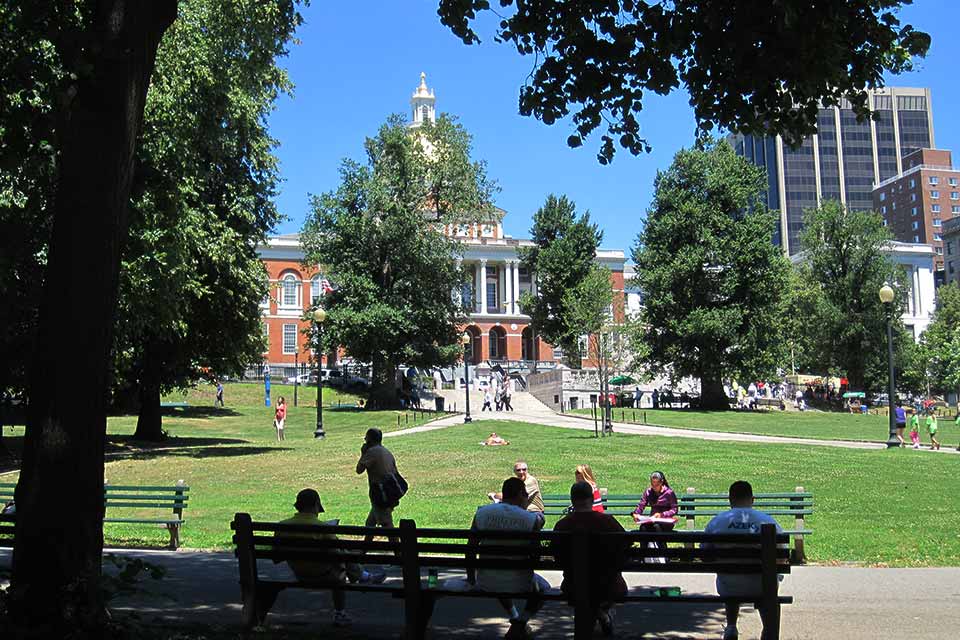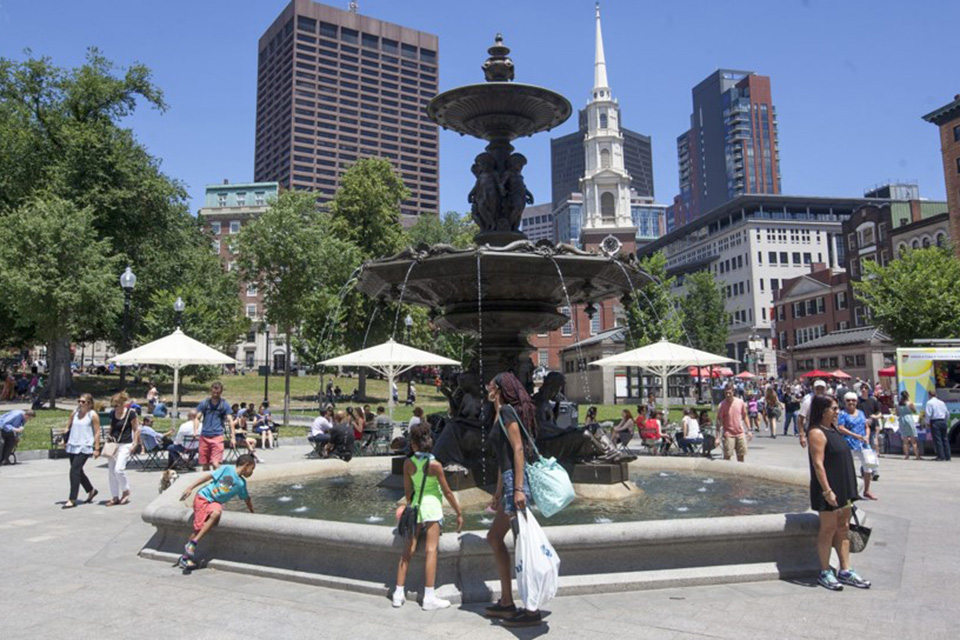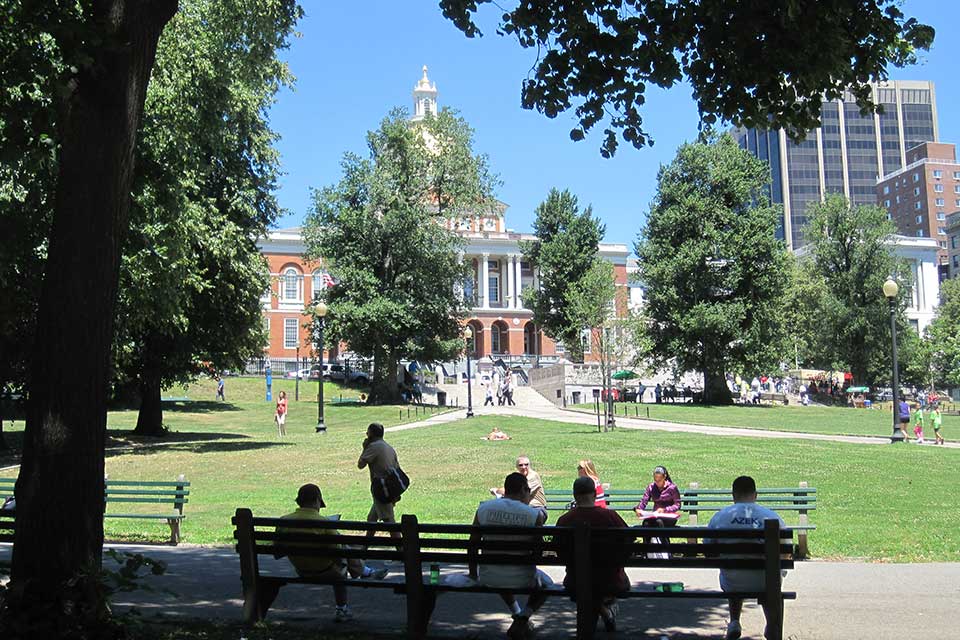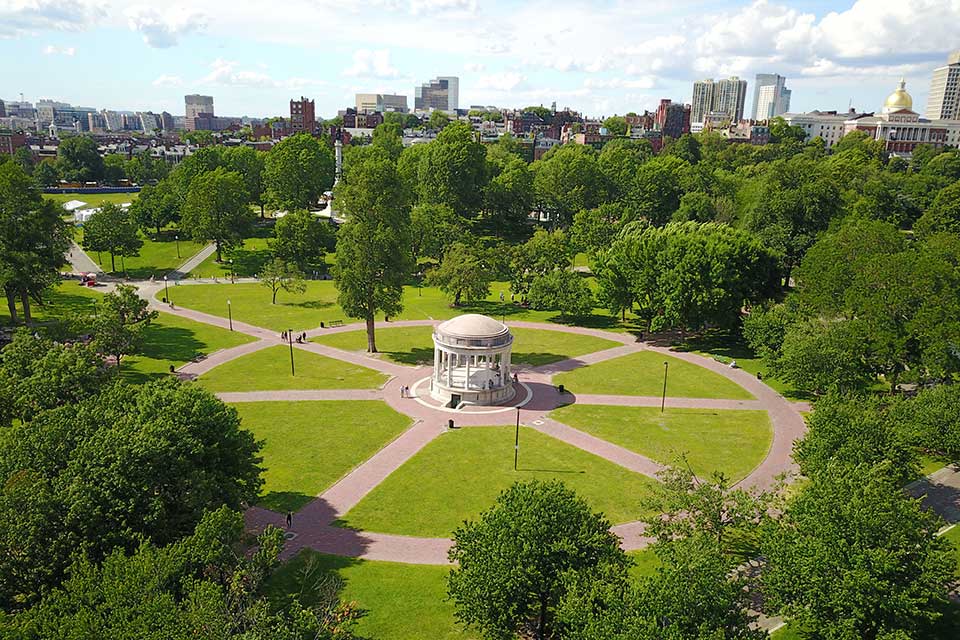Introduction
Boston Common and the adjacent Public Garden are iconic landmarks that date to the City of Boston’s earliest years. A 700-foot-high office tower is being proposed on Winthrop Square, a plot of land that the city recently sold to developers for $153 million. The building would cast a long shadow over the Boston Common in violation of the state’s 1990 shadow law, meant to protect the park from excessive amounts of shadow. On Friday, July 28, 2017, Massachusetts Governor Charlie Barker signed an exemption to the state’s 1990 shadow law. The project is now before the Boston Planning and Development Agency.
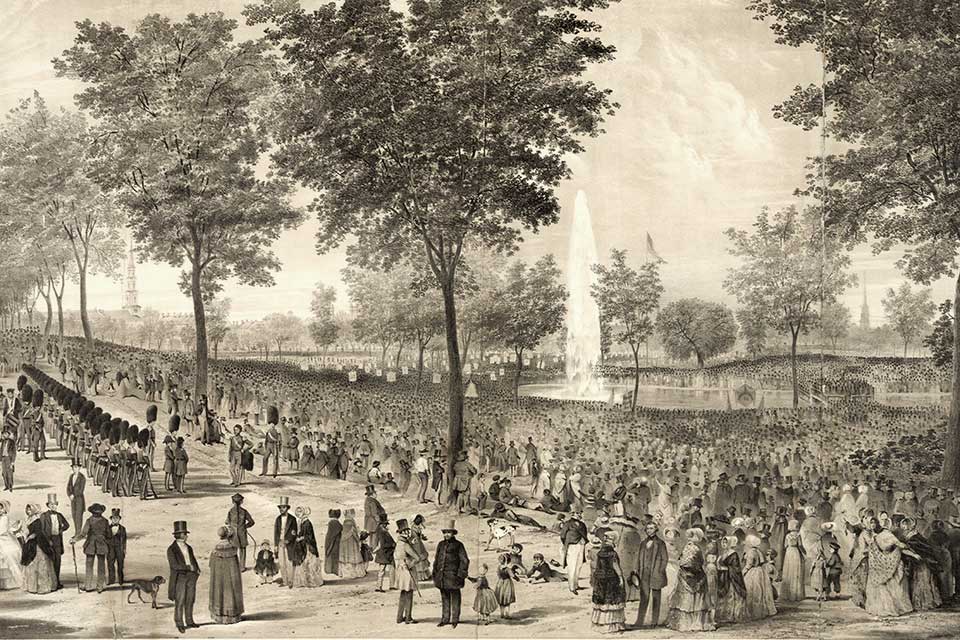 View of the water celebration on Boston Common, October 25, 1848, image courtesy of the Library of Congress
View of the water celebration on Boston Common, October 25, 1848, image courtesy of the Library of Congress
History
The Boston Common, along with the Public Garden and Commonwealth Avenue, served as a preamble to the Boston Park System. As in many New England towns, Boston’s common land, used for pasturing cows, also accommodated pedestrian foot traffic. Until 1830 cattle grazed freely on the treeless grounds, then known as Blaxton’s farm. In 1836 an ornamental fence was constructed around its perimeter and the park’s circulation network was articulated to include pedestrian malls and promenades. The transformation to a wooded park, lined with double and single rows of canopy trees, happened in the late nineteenth century.
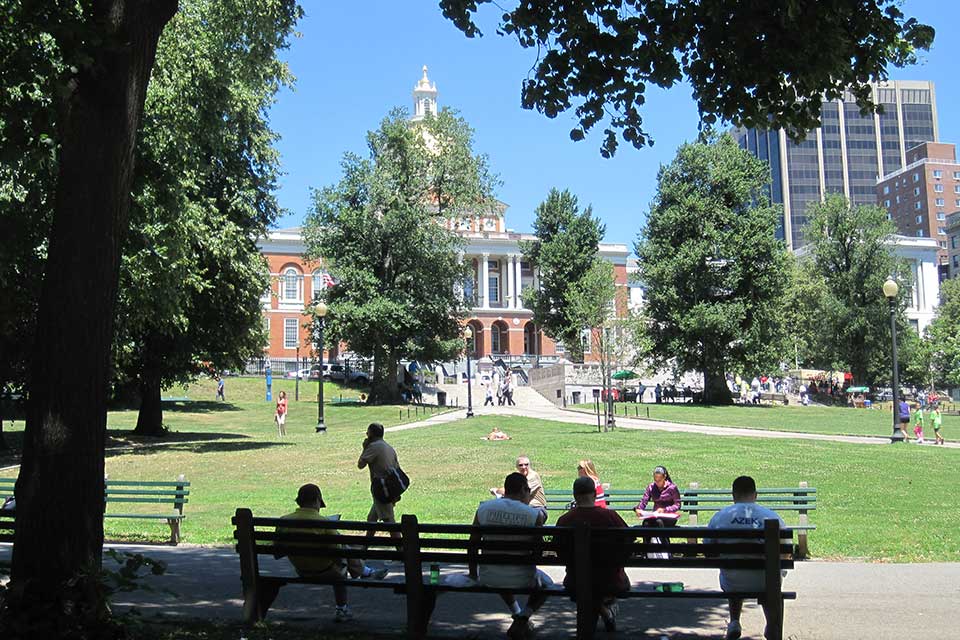 Boston Common, Boston, MA, photo by Charles A. Birnbaum, 2010
Boston Common, Boston, MA, photo by Charles A. Birnbaum, 2010
The 50-acre park, located at the foot of the State House, has no single designer. Olmsted Brothers oversaw considerable renovation between 1910 and 1913, while Arthur Shurcliff prepared a general plan in the 1920s. In 1990 the Boston Common Management Plan was completed. The plan was updated in 1996. Significant landscape features include the Brewster Fountain by Paul Lienard; the Soldiers and Sailors Monument by Martin Milmore; and the Parkman Bandstand. The Central Burying Ground is one of the city’s oldest cemeteries. The nation’s first subway system opened here in 1897. The Common was listed in the National Register of Historic Places in 1972 and was included in a National Historic Landmark Historic District in 1987.
Landslide Themes
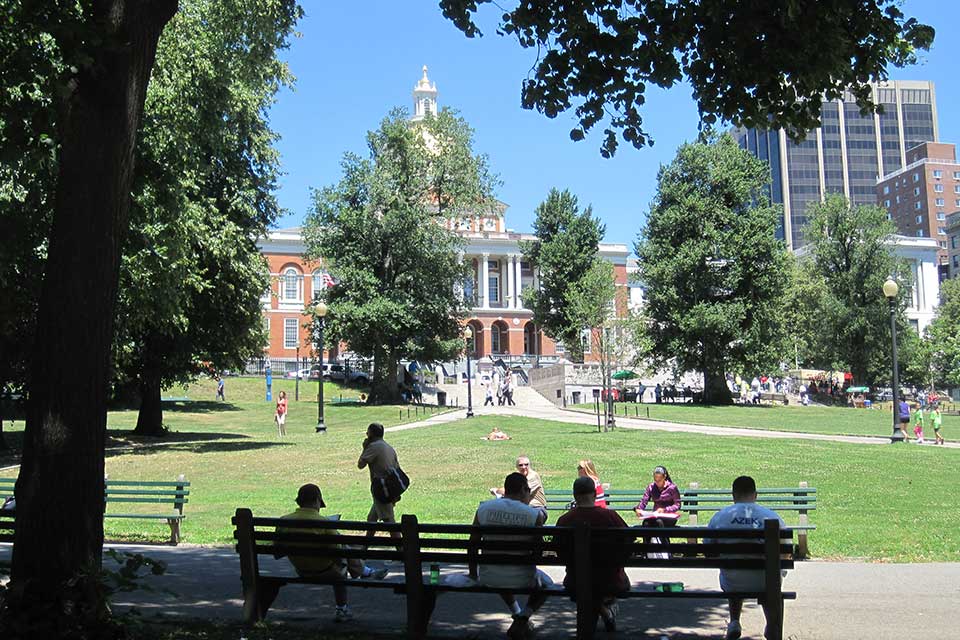
Threat
On Friday, July 28, 2017, Massachusetts Governor Charlie Barker signed an exemption to the state’s 1990 shadow law, which limits the amount of shadow cast by buildings on the Common and Public Garden. The exemption would allow for the construction of a 7oo-foot-tall, 5o-story condo and office complex at 115 Winthrop Square, near the Common (the original height was 775 feet, but was reduced after concerns were raised that it could interfere with flights in and out of Logan Airport). The height of the proposed skyscraper is nearly twice the 400-foot limit that the current law would allow, and it is estimated that, if built, it would be in violation of the state shadow law on 264 days a year.
A major impetus for the exemption is the financial windfall the city received – $153 million – from the sale of the city-owned building to the developers. Millennium Partners, the building’s developer, and city officials, including Mayor Martin J. Walsh, a strong proponent of the project, persuaded the City Council and the state legislature to approve the exemption. The mayor has pledged that a significant portion of the proceeds would go to city park maintenance and the renovation of affordable housing.
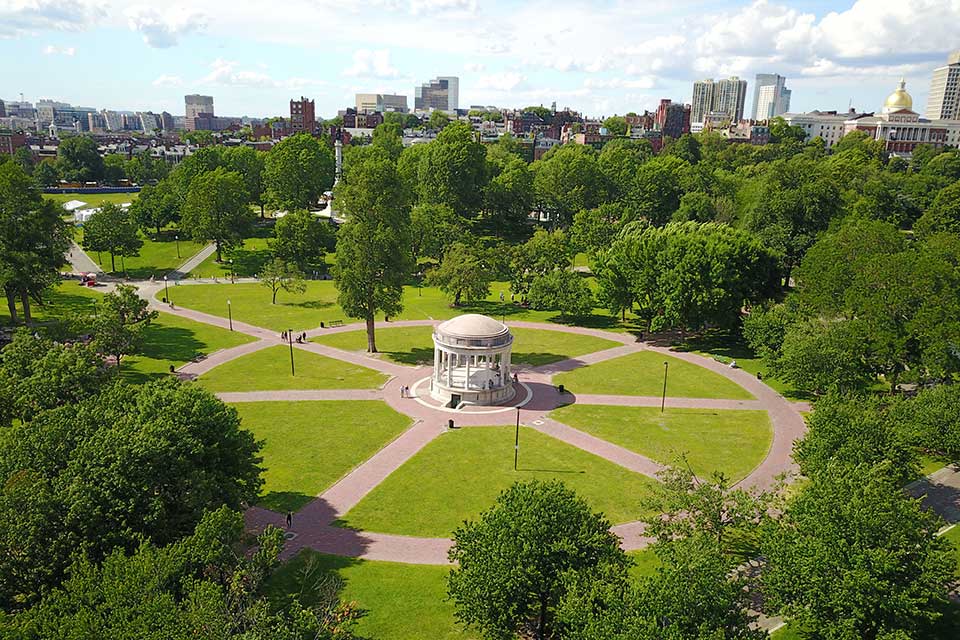 Boston Common, Boston, MA, photo by Abhi Suryawanshi, 2017
Boston Common, Boston, MA, photo by Abhi Suryawanshi, 2017
There was opposition, especially from Friends of the Public Garden, which “works to preserve and enhance Boston’s first public parks – the Boston Common, Public Garden, and Commonwealth Avenue Mall.” However, the City and Millennium Partners did prevail. In a July 28, 2017, statement, Friends Board Chair Leslie Adam and Executive Director Elizabeth Vizza said: “While we lost the battle to prevent this exemption from the state laws, we have succeeded in negotiating important commitments through our discussions with the Mayor’s office, the Boston Planning and Development Authority, and Millennium.” They cited planning and studies that would be undertaken on behalf of the Boston Common, along with “$28 million slated to come to that park. Of the $28 million, $5 million will be set aside in a trust that will be used to fund maintenance of the Common. …In addition, Millennium has agreed to make an annual contribution of $125,000 for 40 years to a special fund managed and overseen by The Boston Foundation that will be used for the maintenance and enhancement of the Boston Common, Public Garden, and Commonwealth Avenue Mall.”
One of the project’s biggest skeptics is Commonwealth Secretary William Galvin. According to an August 1, 2017, WGBH article: “Galvin was highly critical of the process thus far, noting that the City of Boston never conducted an independent review of the building and its impact; that the developers had revealed the expected shadow only after having skirted city review; and that the developers acknowledged to state officials, after Boston City Council had passed the … exemption, that they still weren’t sure how tall the building would be.” Of the exemption, he stated: “All this legislation did was remove a layer of protection that was there, which is unfortunate … It doesn’t necessarily mean the building is going to be built. There’s still a process to go through, and we’re certainly going to be part of that process.”
In fact, in his capacity as Chairman of the Massachusetts Historical Commission, Galvin has called for the Massachusetts EPA (MEPA) to conduct a full Environmental Impact Report (EIR) that would assess the impact of the Winthrop Square project on the Common, Public Garden, and neighboring historic areas and buildings.
What You Can Do to Help
Contact the Boston Planning and Development Agency, which has approval power over the project, and urge them to reject the tower at 115 Winthrop Square. The agency can be contacted online through their website and/or by writing to the following address:
Mr. Brian P. Golden, Director
Boston Planning & Development Agency
One City Hall Square
Boston, MA 02201
Monitor the project on the MEPA website, which is updated on a bi-weekly basis. This is where information on the Environmental Impact Report will be published, along with the name of the MEPA staff person overseeing the project and the due date for comments.
Contact the mayor and urge that the project be rejected:
Honorable Martin J. Walsh, Mayor, City of Boston
1 City Hall Square, Suite 500
Boston, MA 02201
(617)-635-4500
